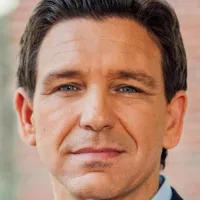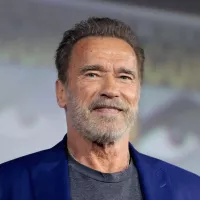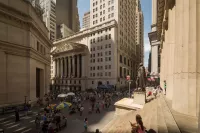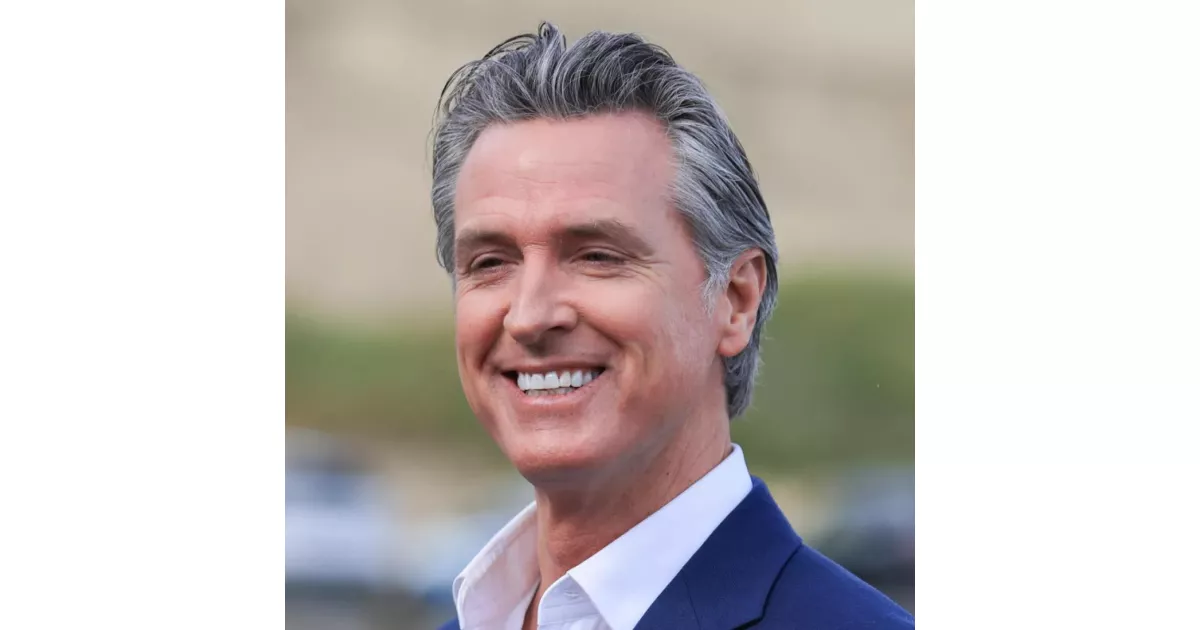Life is full of challenges, and Gavin Newsom faced many. Discover key struggles and how they were overcome.
Gavin Newsom is an American politician and businessman currently serving as the 40th governor of California since 2019. As a member of the Democratic Party, his political career includes serving as the 49th lieutenant governor of California from 2011 to 2019. Prior to that, he was the 42nd mayor of San Francisco, holding the office from 2004 to 2011.
February 2007: Treatment for Alcohol Use Disorder
In February 2007, Gavin Newsom announced that he would seek treatment for alcohol use disorder.
2016: Voters Upheld Capital Punishment and Agreed to Move Condemned Inmates
In 2016, California voters upheld capital punishment and agreed to move the condemned to other prisons.
2018: Fire That Destroyed the Town of Paradise
In 2018, a fire destroyed the town of Paradise, where at least eight evacuees burned to death in their vehicles.
January 2019: Newsom Threatens to Withhold Infrastructure Funding
In late January 2019, Gavin Newsom threatened to withhold state funding for infrastructure from communities that failed to alleviate California's housing shortage. He also announced that he would sue Huntington Beach for preventing the construction of affordable housing.
February 2019: Newsom Announces Postponement of High-Speed Rail Project
In February 2019, Gavin Newsom announced during his State of the State address that work would continue on the Central Valley segment of the high-speed rail project, but the rest of the system would be indefinitely postponed due to cost overruns and delays. This decision created tension with the State Building and Construction Trades Council of California.
March 13, 2019: Moratorium on the Death Penalty
On March 13, 2019, Gavin Newsom declared a moratorium on the death penalty in California, preventing any executions while he remained governor. This action also led to the withdrawal of the state's lethal injection protocol and the closure of the execution chamber at San Quentin State Prison.
September 2019: Veto of SB 1
In September 2019, Gavin Newsom vetoed SB 1, which would have preserved environmental protections at the state level that were set to roll back nationally under the Trump administration's environmental policy.
January 2020: False Claims About Wildfire Treatment
In January 2020, Gavin Newsom and Cal Fire falsely claimed that 90,000 acres of land at risk for wildfires had been treated with fuel breaks and prescribed burns.
February 21, 2020: Introduction of Recall Petition
On February 21, 2020, a recall petition was introduced against Gavin Newsom by Orrin Heatlie, citing grievances such as the sanctuary state policy and concerns about homelessness and taxes.
March 4, 2020: Declaration of State of Emergency for COVID-19
On March 4, 2020, Gavin Newsom declared a state of emergency in California following the first death attributable to COVID-19. This declaration was intended to help California prepare for and contain the spread of the virus, allowing state agencies to procure equipment and services more easily, share patient information, and alleviate restrictions on state-owned properties. Mitigation policies for the homeless population were also prioritized.
March 22, 2020: State of Emergency Declared for Wildfires
On March 22, 2020, Gavin Newsom declared a state of emergency in preparation for the 2020 wildfire season due to a mass die-off of trees throughout California.
June 10, 2020: Approval of Recall Petition for Circulation
On June 10, 2020, the California secretary of state officially approved the recall petition against Gavin Newsom for circulation, allowing the collection of signatures to proceed.
August 2020: Signature Verification Update
By August 2020, 55,000 signatures had been submitted and verified by the secretary of state for the recall petition against Gavin Newsom.
October 2020: Signature Verification Update
By October 2020, an additional 890 valid signatures had been submitted for the recall petition against Gavin Newsom.
November 2020: The French Laundry Event
In November 2020, Gavin Newsom's attendance at a party at The French Laundry, despite his public health measures, led to increased support for the recall effort.
November 17, 2020: Initial Deadline for Recall Petition Signatures
November 17, 2020, marked the initial deadline for the submission of signatures for the recall petition against Gavin Newsom. However, the deadline was later extended due to the COVID-19 pandemic.
2020: Homelessness is Top Issue for Newsom
In 2020, a poll found that California voters considered homelessness the most important issue for Newsom and the state legislature to address.
2020: Enactment of Stringent Pandemic Restrictions
In 2020, the Newsom administration enacted some of the country's most stringent pandemic restrictions.
January 2021: Low Vaccination Rates
By January 2021, California had one of the lowest vaccination rates in the country, having used only about 30% of its available vaccines.
January 2021: Unemployment Benefit Mismanagement
In January 2021, the Los Angeles Times reported that Gavin Newsom's administration had mismanaged $11.4 billion by disbursing unemployment benefits to ineligible claimants, with another $19 billion under investigation for fraud. Legitimate claimants faced lengthy delays.
February 2021: Approval Rating Decline
In February 2021, Gavin Newsom's approval rating dropped to 46%, with a 48% disapproval rate, attributed to public opinion of his management of the pandemic.
March 17, 2021: Extended Deadline for Recall Petition Signatures
March 17, 2021, was the extended deadline for submitting signatures for the recall petition against Gavin Newsom, granted due to the COVID-19 pandemic. Between November 2020 and March 17, 2021, approximately 98% of the final signature total was submitted.
May 2021: Death Rate Ranking
By May 2021, despite stringent pandemic restrictions, California had the 29th-highest death rate among all 50 states.
June 23, 2021: Report on False Claims
On June 23, 2021, CapRadio reported that Gavin Newsom and Cal Fire had falsely claimed in January 2020 that 90,000 acres of land at risk for wildfires had been treated with fuel breaks and prescribed burns, when the actual treated area was much smaller.
September 14, 2021: Recall Election Result
On September 14, 2021, the recall election against Gavin Newsom was held. The majority, approximately 62%, voted against recalling Newsom, allowing him to remain in office.
2021: Unemployment Debt
By the summer of 2021, California owed $23 billion to the federal government for unemployment benefits paid out during the pandemic, representing 43% of all unemployment debt owed by 13 states.
2021: Faced Recall Effort
In 2021, Gavin Newsom faced an unsuccessful recall effort, partly due to criticism during the COVID-19 pandemic.
2021: Decline in Support for Capital Punishment
In 2021, a poll suggested a decline in support for capital punishment among California voters.
January 13, 2022: Denial of Parole for Sirhan Sirhan
On January 13, 2022, Gavin Newsom denied parole to Sirhan Sirhan, Robert F. Kennedy's assassin, despite a parole board recommendation. Newsom cited Sirhan's lack of insight and refusal to accept responsibility for the assassination in an op-ed for the Los Angeles Times.
January 2022: Direction to Dismantle Death Row
In January 2022, Gavin Newsom directed the state to begin dismantling its death row in San Quentin, with the intention of transforming it into a "space for rehabilitation programs," as condemned inmates were to be moved to other prisons with maximum-security facilities.
April 2022: Report on Fire Prevention Program Failure
In April 2022, CapRadio reported that a program hailed in 2020 by the Newsom administration to fast-track environmental reviews on high-priority fire prevention projects had failed to make progress.
2022: Newsom Vetoes Senate Bill 57
In 2022, Gavin Newsom vetoed Senate Bill 57, which aimed to authorize jurisdictions to approve supervised injection sites.
January 2023: California Homelessness Reaches Record High
In January 2023, the number of homeless individuals in California reached a record 181,000, highlighting the ongoing challenge of addressing homelessness in the state.
October 2023: Newsom Vetoes Bill to Ban Caste Discrimination
In October 2023, Gavin Newsom vetoed a bill that would have banned discrimination based on caste, citing existing protections against discrimination based on other characteristics. The veto was applauded by Hindu rights organizations but criticized by advocates for marginalized castes.
October 2023: Newsom Vetoes Insulin Co-Pay Cap Bill
In October 2023, Gavin Newsom vetoed a bill that would have capped co-pays for insulin at $35.
October 2023: Newsom Vetoes Bills on Unemployment Insurance and Layoff Protections
In October 2023, Gavin Newsom vetoed a bill to provide unemployment insurance to striking workers and another bill to expand layoff protections for employees and contract workers, citing concerns about the state's unemployment system and employer burdens.
October 2023: Newsom Vetoes Bills Expanding Housing Assistance
In October 2023, Gavin Newsom vetoed several bills aimed at expanding access to housing assistance. These included a bill to repurpose unused state-owned land for affordable housing, another to expand eligibility for state housing assistance, and a third to mandate that Medi-Cal cover the cost of housing assistance.
August 2024: Newsom Warns Counties About Homeless Encampments
In August 2024, Gavin Newsom warned counties that failure to remove homeless encampments would result in state funding cuts the following year. This warning followed his personal visit and clearing of a Los Angeles homeless encampment without prior notification to the city.
October 2024: Veto of Assembly Bill 2693
In October 2024, Gavin Newsom vetoed Assembly Bill 2693, which aimed to modify the statute of limitations for sexual abuse cases in juvenile facilities.
2024: Newsom Calls for Safeguarding California Policies
After Donald Trump won the 2024 presidential election, Gavin Newsom called for California lawmakers to convene later in 2024 to safeguard California's policies from the upcoming Trump administration.
2024: Newsom Vetoes SB 1299 Regarding Heat Illness Claims
In 2024, Gavin Newsom vetoed SB 1299, which "would have required workers' comp judges to presume farmworkers who claim heat illness developed it at work".
April 2025: Criticism for Illegal Deportation Comment
In April 2025, Gavin Newsom faced criticism for calling the illegal deportation of Kilmar Abrego Garcia to El Salvador "the distraction of the day," with U.S. Senator Chris Van Hollen questioning his commitment to the Constitution and due process.
June 2025: Lawsuit Against Troop Deployment
In June 2025, following protests in Los Angeles due to federal immigration raids and the deployment of federal troops by President Trump, the State of California, led by Gavin Newsom, filed a federal lawsuit challenging the legality of the troop deployment, alleging an unconstitutional overreach of federal authority.
July 2025: DOJ Lawsuit Against California Over Battery Cage Regulations
In July 2025, the Department of Justice named the state of California, Gavin Newsom, and other public officials in a lawsuit challenging the state's regulations against intensive battery cage eggs, including Proposition 2 and Proposition 12. Newsom's office responded that the Trump administration frequently "blames California for literally everything".
September 2025: Newsom Vetoes Assembly Bill 1840
In September 2025, Gavin Newsom vetoed Assembly Bill 1840, which aimed to prohibit the disqualification of applicants to California Housing Finance Agency home purchase assistance programs based solely on their immigration status.
2025: Newsom Signs California Senate Bill 41
In 2025, Gavin Newsom signed California Senate Bill 41 but vetoed other measures to regulate pharmacy benefit managers.
2025: Newsom Restricts Medi-Cal Enrollment
In 2025, Gavin Newsom signed a budget that restricted new enrollment of undocumented immigrants in Medi-Cal.
2025: Veto of Senate Bill 274
In 2025, Gavin Newsom vetoed Senate Bill 274, which would have expanded regulations on law enforcement's use of automated license plate readers, citing concerns that the proposed rules could hinder police work.
Mentioned in this timeline

Basketball is a team sport played on a rectangular court...

Donald John Trump is an American politician media personality and...
Fox News Channel FNC is a conservative American news and...

Ron DeSantis is an American politician who has served as...

Arnold Schwarzenegger is an Austrian-American actor businessman former politician and...

Benjamin Bibi Netanyahu is a prominent Israeli politician and diplomat...
Trending

Crystal Dunn also known as Crystal Alyssia Soubrier is a prominent figure in American professional soccer She showcases her versatility...

3 months ago Brandi Carlile releases distinct album 'Returning To Myself', explores themes of solitude.

4 months ago Silver Soars Above $50 Amidst Economic and Geopolitical Turmoil: A Four-Decade Peak

8 months ago Stock Market Climbs Amidst Moody's Downgrade and Debt Concerns: Key Takeaways

2 months ago Bitwise Launches XRP ETF Amidst Market Activity; XRP Staking Explored.

10 months ago Milo Manheim and Liz Gillies bond in Little Shop of Horrors, extend run.
Popular

Thomas Douglas Homan is an American law enforcement officer who...

William Franklin Graham III commonly known as Franklin Graham is...

XXXTentacion born Jahseh Dwayne Ricardo Onfroy was a controversial yet...

Jupiter is the fifth and largest planet from the Sun...

Kristi Noem is an American politician who has served as...

Instagram is a photo and video-sharing social networking service owned...
